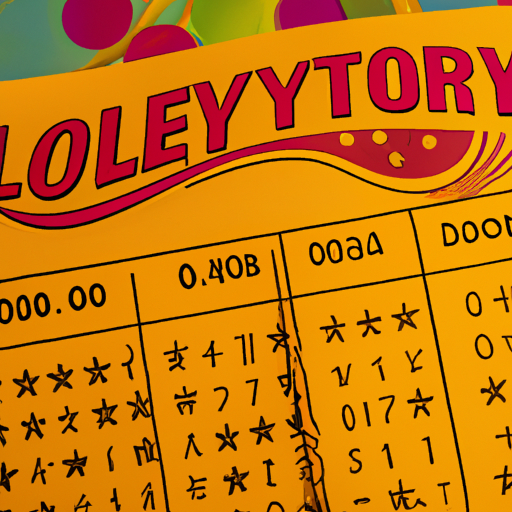Are you interested in joining a lottery pool with your friends or coworkers to increase your chances of winning big? You may be wondering, are lottery pools legal? In this article, we will explore the legality of lottery pools and provide you with all the information you need to know before joining one. From understanding the rules and regulations surrounding lottery pool agreements to tips for ensuring a fair and enjoyable experience, we’ve got you covered. So, let’s dive in and find out if lottery pools are a legal and rewarding option for you!
Understanding Lottery Pools
Definition of Lottery Pools
Lottery pools, also known as lottery syndicates or group play, are arrangements where a group of individuals collectively contribute funds to purchase lottery tickets. The winnings, if any, are then divided among the participants based on the agreed-upon terms. By pooling their resources together, participants increase their chances of winning a lottery prize without having to spend a significant amount of money individually.
How Lottery Pools Work
In a lottery pool, a designated organizer is responsible for collecting contributions from the participants and purchasing the lottery tickets on behalf of the group. The organizer ensures that everyone’s money is pooled together to buy multiple tickets, thus improving the odds of winning. If any of the tickets purchased by the pool wins a prize, the organizer distributes the winnings according to the predetermined rules and agreements established within the group.
Benefits of Joining a Lottery Pool
Joining a lottery pool offers several advantages. Firstly, it allows you to increase your chances of winning the lottery without having to spend a substantial amount of money on tickets individually. By pooling funds together, participants can purchase a larger number of tickets, enhancing the odds of winning a prize. Additionally, being part of a lottery pool can also make the experience more enjoyable, as you get to share the excitement and anticipation with other members of the group. Lastly, lottery pools provide a structured way to manage finances and establish clear rules and agreements for distributing winnings, removing any potential disputes.
Risks and Challenges of Lottery Pools
While lottery pools have numerous benefits, it is important to be aware of certain risks and challenges as well. One potential challenge is keeping track of contributions from all participants and ensuring that everyone receives their fair share of the winnings. Transparency and effective record-keeping are crucial elements in minimizing disputes. Additionally, issues can arise if one or more participants fail to contribute their agreed-upon portion or if the organizer mishandles the funds. To avoid these risks, it is essential to establish clear rules, maintain open communication, and choose trustworthy individuals to be part of the pool.
Legal Considerations
Legality of Lottery Pools
The legality of lottery pools varies from jurisdiction to jurisdiction. In many countries, lottery pools are lawful and widely accepted. However, it is important to understand the specific laws and regulations in your area before participating in or organizing a lottery pool. In some cases, lottery pools may be explicitly allowed, while in others, there may be restrictions or specific requirements that need to be met.
Laws and Regulations Surrounding Lottery Pools
To ensure compliance with the law, it is crucial to familiarize yourself with the laws and regulations specific to lottery pools in your jurisdiction. Some jurisdictions may require the organizer to obtain a license or apply for permission to conduct a lottery pool. Additionally, there may be rules regarding the maximum number of participants, the collection and handling of funds, and the distribution of winnings. By understanding and adhering to these regulations, you can mitigate legal risks and operate within the confines of the law.
Differences in Legislation by Jurisdiction
It is important to note that the laws and regulations surrounding lottery pools can vary significantly from one jurisdiction to another. While some jurisdictions may have clear and specific laws addressing lottery pools, others may have limited or ambiguous regulations. It is advisable to consult legal experts or relevant authorities in your area to obtain accurate and up-to-date information regarding the legality of lottery pools and any specific requirements that need to be followed.
Forming a Lottery Pool
Organizing the Group
Forming a lottery pool begins with identifying individuals who are interested in participating. This can be done through personal acquaintances, friends, family, or coworkers. It is important to establish a group of individuals who are committed and trustworthy, as this will be essential for the smooth operation of the pool. Once the group is formed, a designated organizer should be selected, someone who is responsible and capable of managing the logistics of the pool effectively.
Establishing Rules and Agreements
Clear rules and agreements are vital in lottery pools to ensure fairness and avoid potential conflicts. The group should decide on various aspects, such as the contribution amount from each participant, the frequency of ticket purchases, the distribution of winnings, and any additional rules or policies deemed necessary. These rules and agreements should be documented in writing and shared with all participants to ensure transparency and avoid misunderstandings.
Handling Finances and Ticket Purchases
Properly managing the finances of a lottery pool is crucial to maintain trust and accountability among the participants. The organizer should establish a system for collecting contributions from each participant and record all financial transactions. It is advisable to use secure and traceable payment methods, such as bank transfers or digital platforms, to minimize the risk of disputes or mishandling of funds. When purchasing tickets, the organizer should keep thorough records of the numbers played, the draw dates, and the cost of each ticket.
Record-keeping and Transparency
Maintaining accurate records and ensuring transparency within the lottery pool is essential for building trust and resolving any potential disputes. The organizer should keep track of who has contributed to each pool, the amount contributed by each participant, and the winnings distributed. All financial transactions and ticket purchases should be properly documented and made available to the participants upon request. By maintaining transparency and having detailed records, the lottery pool can operate smoothly and foster a sense of fairness among its members.
Participating in a Lottery Pool
Choosing a Trustworthy Pool
When considering joining a lottery pool, it is crucial to carefully evaluate the trustworthiness and credibility of the group and its organizer. Look for established pools with a proven track record and positive testimonials from previous participants. Assess the communication and transparency of the group, ensuring that there are clear rules and agreements in place. If possible, speak to current or former participants to gain insights into their experiences and satisfaction with the pool.
Understanding Pool Participation Terms
Before joining a lottery pool, it is essential to thoroughly understand the terms and conditions of participation. Familiarize yourself with the contribution amount, the frequency of ticket purchases, and the method of distributing winnings. It is important to clarify any doubts or concerns with the organizer before committing to join the pool. Being well-informed about the pool’s operation ensures that you can actively participate and enjoy the benefits of pooling funds together.
Contributing to the Pool
Once you have joined a lottery pool, it is important to fulfill your financial obligations promptly and consistently. Adhering to the agreed-upon contribution amount and payment schedule ensures that the group can purchase tickets as planned. Failing to contribute as agreed may result in exclusion from the pool and loss of potential winnings. Open communication and timely payments contribute to maintaining trust and a harmonious operation within the pool.
Legal Rights and Responsibilities of Participants
As a participant in a lottery pool, you have certain legal rights and responsibilities. It is essential to understand your rights regarding the distribution of winnings, access to financial records, and adherence to the established rules. At the same time, participants must fulfill their responsibilities, including contributing their agreed-upon funds on time and abiding by the pool’s rules. Being aware of your rights and responsibilities helps maintain a fair and mutually beneficial environment within the lottery pool.
Tax Implications
Tax Treatment of Lottery Winnings
Lottery winnings are generally subject to taxation in most jurisdictions. The specific tax treatment of lottery winnings can vary, depending on factors such as the amount won, the jurisdiction of residence, and any applicable tax laws or regulations. It is important to consult with a tax professional or seek advice from relevant authorities to understand the tax implications associated with lottery winnings in your specific situation.
Tax Obligations for Pool Organizers
In some jurisdictions, the organizer of a lottery pool may have additional tax obligations. The organizer may be responsible for reporting and distributing the winnings to the participants, ensuring that the necessary taxes are withheld and properly paid. The specific tax obligations for pool organizers can vary, so it is crucial to seek guidance from a tax professional to fulfill these obligations appropriately.
Individual Tax Responsibilities for Participants
For individual participants in a lottery pool, the tax responsibilities may vary depending on the jurisdiction. In some cases, the lottery winnings received through the pool may be considered taxable income for each participant. It is important to carefully review the tax laws and regulations in your jurisdiction to understand your individual tax obligations upon receiving a share of the pool’s winnings. Seeking advice from a tax professional can help ensure compliance with tax laws and regulations.
Avoiding Legal Issues
Consulting Legal Advice
To avoid potential legal issues when participating in or organizing a lottery pool, it is advisable to seek legal advice specific to your jurisdiction. Consulting a lawyer knowledgeable in local laws and regulations can provide valuable insights into the legality of lottery pools and the requirements that need to be met. Legal advice can help ensure that you operate within the boundaries of the law and minimize any legal risks associated with lottery pools.
Complying with State Laws
Lottery pools are subject to state laws and regulations, which may vary significantly across different jurisdictions. It is crucial to educate yourself on the specific laws pertaining to lottery pools in your state or region. This includes understanding any licensing requirements, limitations on the number of participants, rules regarding financial transactions, and regulations surrounding the distribution of winnings. Compliance with state laws is essential to avoid potential legal consequences and ensure a smooth operation of the lottery pool.
Ensuring Transparency and Trustworthiness
Transparency and trustworthiness are key elements in avoiding legal issues when participating in a lottery pool. By establishing clear rules, keeping impeccable records, and maintaining open communication with all participants, you can foster an environment of trust and transparency. Providing access to financial records, ticket purchases, and distribution of winnings ensures accountability and minimizes the risk of disputes. By prioritizing transparency, you minimize legal risks and contribute to a positive lottery pool experience.
Avoiding Potential Fraud or Scams
While participating in a lottery pool can be exciting, it’s important to be cautious and avoid potential fraud or scams. Be wary of pools that require excessive fees or promise unrealistic winnings. Do thorough research on the organizer and the pool’s history before joining. Legitimate lottery pools operate transparently and have established reputations. If something seems too good to be true or raises suspicions, it is best to err on the side of caution and explore alternative options.
Case Law and Precedents
Notable Legal Cases Involving Lottery Pools
Over the years, there have been several legal cases involving lottery pools that have established precedents and clarified certain legal aspects. These cases have addressed issues such as the distribution of winnings, the responsibilities of organizers, and the enforceability of rules and agreements within lottery pools. Studying past legal cases can provide valuable insights into potential pitfalls and help lottery pool organizers and participants understand their rights and obligations.
Court Decisions and Rulings
Court decisions and rulings in cases involving lottery pools have had a significant impact on the operations and legal considerations surrounding these groups. These decisions have clarified legal principles, resolved disputes, and set precedents that influence future cases. It is important to be aware of any court decisions or rulings that may be applicable to lottery pools in your jurisdiction, as they can have a direct impact on the legality, rights, and responsibilities of participants.
Impact of Case Law on Lottery Pool Operations
Case law plays a crucial role in shaping the operations and legal landscape of lottery pools. The decisions made in previous cases provide guidance and establish legal principles that affect how lottery pools conduct their activities. By studying and understanding the impact of case law on lottery pool operations, organizers and participants can ensure compliance with legal requirements, mitigate risks, and maintain a fair and lawful environment within their pool.
Risk Management
Mitigating Risks in Lottery Pool Operations
Effective risk management is essential for the successful operation of a lottery pool. By identifying potential risks and implementing appropriate measures, organizers can mitigate the likelihood and impact of these risks. Key risk management strategies include clear and transparent communication, thorough record-keeping, regularly reviewing and updating pool rules, and establishing dispute resolution procedures. Applying these risk management techniques helps maintain trust among participants and reduces the potential for legal issues.
Liability and Insurance Coverage
Organizers of lottery pools should consider the potential liability associated with their role and evaluate the need for insurance coverage. Liability insurance can protect organizers against claims or lawsuits arising from mishandling funds, miscommunication, or errors in distributing winnings. It is crucial to consult with an insurance professional to assess the specific risks and determine the appropriate level of coverage to protect both the organizer and the participating members of the pool.
Dispute Resolution Procedures
Despite efforts to establish clear rules and maintain transparency, disputes can still arise within a lottery pool. Implementing effective dispute resolution procedures is crucial for resolving conflicts efficiently and ensuring that the group can move forward smoothly. These procedures may include methods such as mediation, arbitration, or the appointment of a neutral third party to facilitate resolution. A predetermined dispute resolution process helps avoid lengthy legal battles and fosters a cooperative and harmonious environment within the lottery pool.
Alternatives to Lottery Pools
Individual Ticket Purchases
If participating in a lottery pool is not appealing to you, an alternative option is to purchase lottery tickets individually. While this approach doesn’t offer the advantage of pooling resources, it allows you to maintain full control of your own tickets and potential winnings. However, it’s important to note that the odds of winning remain the same regardless of whether you participate individually or in a pool.
Private Syndicates
Private syndicates are similar to lottery pools but typically involve a smaller, more closely-knit group of participants. Private syndicates are formed among friends, family members, or colleagues, providing a sense of familiarity and trust that may be preferred by some individuals. The structure and operation of private syndicates are similar to lottery pools, with contributions pooled together to purchase tickets and winnings distributed among the participants as agreed upon.
Online Lottery Platforms
The advent of online lottery platforms has introduced a convenient alternative to traditional lottery pools. These platforms enable individuals to join virtual lottery pools, often consisting of participants from different locations. Online lottery platforms handle the administrative aspects of the pool, such as ticket purchases and distribution of winnings. This option provides flexibility and convenience, allowing you to participate in lottery pools without geographical limitations.
Conclusion
Lottery pools offer an exciting opportunity to increase your chances of winning a lottery prize while sharing the experience with others. Understanding the legal considerations, forming a well-organized pool, and participating responsibly are crucial for a positive and successful lottery pool experience. By adhering to laws and regulations, establishing clear rules, and implementing risk management strategies, you can minimize legal risks and enhance the transparency and trustworthiness of the pool. Additionally, exploring alternatives such as individual ticket purchases, private syndicates, or online lottery platforms provides flexibility to cater to personal preferences. With careful consideration and informed participation, lottery pools can be a fun and potentially rewarding way to partake in the thrill of playing the lottery.






